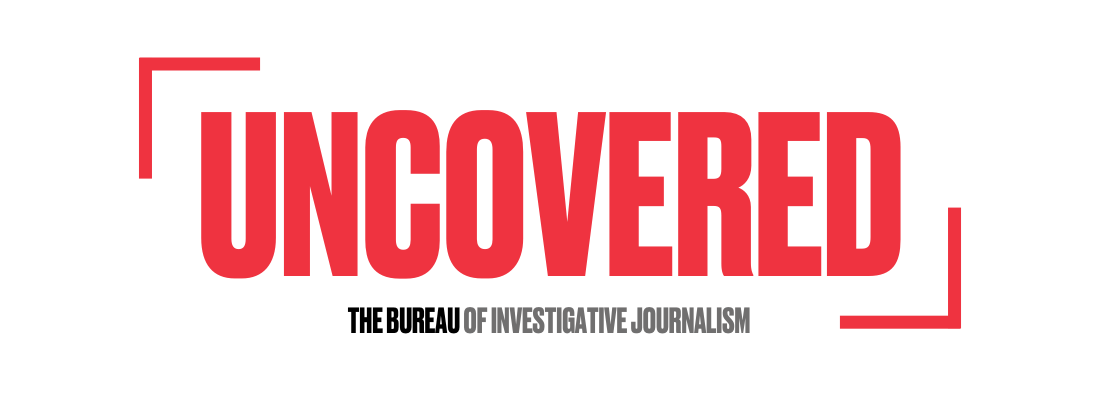
“You can’t have economic growth without delivering on net zero”
Hi {{ First name | there }},
Our regular readers will already have known that BP’s ‘Beyond Petroleum’ shtick was a bit of a joke.
But this week BP dropped its pledge to cut oil and gas production by 40% by 2030. Instead, it will spend 20% more on oil and gas projects, while cutting renewables investment by 70%.
Here at the Bureau of Investigative Journalism, we revealed last autumn that while the COP climate conference was underway in Azerbaijan, BP was drilling for gas nearby. Its vaunted claims of bringing oil production down didn’t add up to much either. The reduction in those figures was only down to BP selling its stake in the Russian energy company Rosneft in the wake of the invasion of Ukraine.
And it’s not just BP. Since May 2021, banks have raised $1 trillion dollars for new oil and gas projects, as we revealed last year. Thank you, Bureau Insiders whose support meant we could do the work.
This is Trump’s world. While shareholder pressure on the back of poor financial results triggered this, the US president’s shadow looms large.
Trump has completely changed the economic environment for companies actually trying to become cleaner. When net zero targets are shredded, fossil fuel prices drop and clean energy becomes less competitive. There should really be little doubt at this point that the planet going to hell in a handbasket means infernal fires scorching the earth.
And yet it’s not all doom and gloom. Our investigations into how banks are breaking their own net zero promises have driven accountability. It is important to engage investors here, because they are often in the best position to make company executives change their ways. Our reporting drove investors in Barclays to publicly question why it helped raise $1.7bn for coal-fired power plants. This kind of pressure is continuing to build.
There’s good reason to believe that, even within its own profit-making logic, BP may be making a strategic mistake. Its shift is out of step with a significant move towards decarbonising major economies. China, to take one example, has been desperate to clear the smog choking some of its cities and might be the nation that is most committed to electric vehicles.
The green revolution has momentum in the UK too. As Bloomberg pointed out this week, the UK can reach net-zero emissions by 2050 while spending as little as 0.2% of the country’s gross domestic product. This means government spending needed to achieve net zero in the UK is only £4.3bn, compared with the 2020 estimate of £16.1bn. Technology is our friend here.
Bloomberg cited the Climate Change Committee, an independent body that advises the government. This quote from Emma Pinchbeck, the chief executive of the committee, in the Guardian should give you a lot of hope: “There’s a very powerful economic argument here, and it always troubles me when I hear politicians polarise them [the issues of economic growth and moving to a low-carbon society]. Because they are essential to one another. You can’t have economic growth without delivering on net zero.”
There are also some positive developments that are worth following. A few weeks ago I was on a panel with some very clever lawyers discussing how to fight the scourge of “dark money” – our name for any money someone is trying to hide from authorities.
What does dark money have to do with the climate, you might ask? Quite a lot actually.
Lawyers are finding smart ways to hold companies damaging the environment accountable in the UK using laws established to combat money laundering. They need our reporting to do this.
If you are appalled by how the US and companies like BP have abandoned their pledges to try to slow climate change, then you can support us in doing the investigative work which will hold these companies accountable – whether Trump likes it or not.
Factchecked!
Each week we reveal a fascinating fact from our reporting…
Did you know?
Apple’s generative AI ended up putting inaccurate headlines on curated news articles, with both entirely false information and missing context.
Find out more
Artificial intelligence is the tech world’s latest obsession. Meta is planning to flood its social networks with AI bots mimicking humans. Google is pushing AI-driven search that regularly throws up false results.
All of this points towards the start of a new era of disinformation – where it will become increasingly hard to tell fact from fiction.
As Zuckerberg proved in January, giving up on accurate information altogether is becoming the preferred option for social media giants. Read more here.
A setback for snakebite
As well as encouraging oil companies to ditch their moral compasses, Trump’s rampage has destroyed life-saving health programmes around the world.
In the small southern African country of Eswatini, remarkable progress has been made against snakebite, one of the world’s most deadly neglected diseases. But Trump’s freeze on US foreign aid means that success is under threat.
Snake bites are a major killer in many African countries, where effective treatment has been plagued with issues for years. In 2023 bites killed an estimated 20,000 people in sub-Saharan Africa alone. A major investigation by TBIJ last month revealed an antivenom market in sub-Saharan Africa blighted by ineffective medicines, bad regulation and fraudulent research.
Eswatini, however, stands in marked contrast to many of its neighbours as an extraordinary success story. It recorded zero snakebite deaths for the first time in its recent summer season, when rates are typically high. At its peak snake bites are estimated to have caused more than 60 deaths a year in the country.
The Luke Commission, a hospital that has come to act as the country’s go-to referral destination for people with serious snake bites, has been central to this success story. But earlier this month it closed its doors to most patients after sudden cuts to its funding from USAID, the US government’s main overseas aid agency.
At the end of January, management had received written notice from the US government of an immediate pause in its support. In a statement posted on its website on 15 February, the hospital said: “Due to the [USAID] funding pause and a written stop order requiring immediate compliance, we have temporarily closed the campus to most patients.”
The hospital told TBIJ that the US funding cut was one of several factors that led to the closure.
“We’re at risk of going back to the dark ages,” said Thea Litschka-Koen, a leading snakebite expert in the country. “Now we’ve got nowhere to send [snakebite patients]. We’ll go back to losing more than 60 lives a year.” She said The Luke Commission has treated more than 1,000 snakebite patients over the past six years.
Eswatini’s success in tackling snake bites has been described by the World Health Organization’s leading expert on the matter, Dr David Williams, as “an example to the rest of Africa, and to the world”.
He put it down to a “holistic approach” that incorporates educating people on how to respond to a snake bite alongside access to good-quality medicine and care.
Your support allows us to find important under-reported problems like this, giving you a unique understanding of the world. We have a blockbuster investigation into bad pharma in the works. Your support will help us get it over the line.
What we’ve been reading
🔴 Airbnb and Booking.com are advertising holiday lets built on illegally stolen Palestinian land in the West Bank guardian.com
🔴 Elon Musk’s satellite internet business Starlink is being used by criminals running scam factories full of enslaved workers in Myanmar wired.com
🔴 Inside the government project to end illegal gold mining in the Brazilian Amazon context.news
Thanks,
Franz
Franz Wild
Editor




